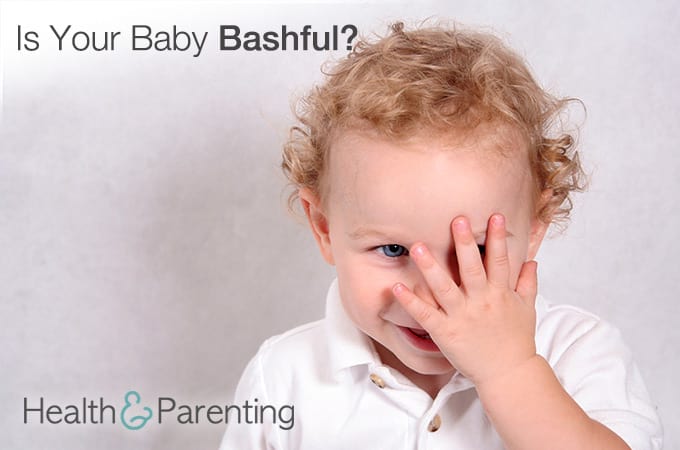Similar to older children and adults, certain babies may be more extroverted than others. For instance, some babies kick their little legs, smile and coo at every stranger they see. While other babies may be a bit more reserved and even seem a little shy.
It can sometimes be difficult to tell if your baby is shy or just going through a normal developmental stage. For example, if your little one cries or buries his head in your chest when friends come over, stranger anxiety may be to blame. Even friendly, easygoing babies may become clingy at a certain stage.
Although all babies may go through a period of clinging to mom and dad, shy babies may seem to hold on for dear life. Shy babies may also resist new things and get upset when faced with a new situation. Still, you may not know if your baby is shy until he is a toddler or even older.
Keep in mind, shyness may be somewhat genetic. It may just be a part of your baby’s personality to be on the shy side. If you think your little one may be showing signs he is shy; you can’t change his inborn temperament. Still, you may want to help your baby learn to be a little more outgoing.
While you don’t want to push your little one too much, there are ways to encourage socialization. Consider joining a playgroup or spend time with friends who have babies. Bring your baby along when you run errands, such as shopping or going to the bank. The idea is to provide plenty of opportunities for your baby to be around other people and interact as much as possible.
Try not to force your baby into social situations he is not confrontable with to help him overcome her shyness. Be sure to give him plenty of time to warm up when he is in an unfamiliar situation or around new people. For instance, keep him close to you until he shows signs he is comfortable and wants to interact. Signs may include cooing and smiling at people, or if your little one is a bit older, he may try to get off your lap or down on the ground if you are holding him.
Some children may lose their shyness as they become older and gain more confidence. Even if your baby is always a bit bashful, it does not mean it will hold him back. He may just do things at his own pace.
Written by MaryAnn DePietro @writerlady34
This information is not intended to replace the advice of a trained medical doctor. Health & Parenting Ltd disclaims any liability for the decisions you make based on this information, which is provided to you on a general information basis only and not as a substitute for personalized medical advice. All contents copyright © Health & Parenting Ltd 2016. All rights reserved.










